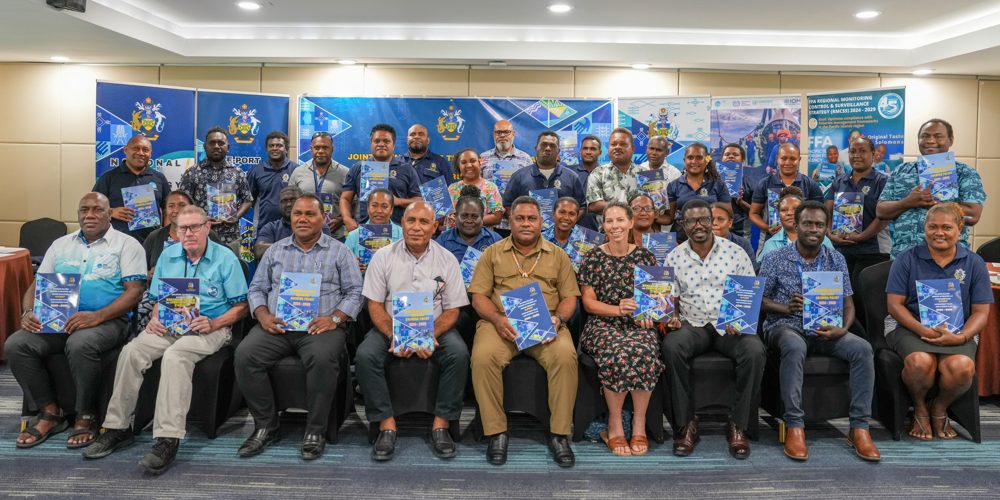The Ministry of Fisheries and Marine Resources (MFMR), on Friday, launched three critical policy documents aimed at strengthening the enforcement of our laws to ensure the sustainability of Solomon Islands tuna fisheries.
The documents include the Solomon Islands National Monitoring, Control, and Surveillance (MCS) Strategy, the Solomon Islands National Crewing Policy, and the Solomon Islands National Electronic Port Policy.
In his keynote address, the Supervising Minister of Fisheries, Hon. Rexon Ramofafia, highlighted the significance of these policies in enhancing fisheries management and combating Illegal, Unreported, and Unregulated (IUU) fishing.
“These policy documents are vital in our fight against IUU fishing and related activities in our waters,” Minister Ramofafia stated.
The new policies collectively aim to ensure sustainable fisheries management, compliance with regulatory standards, and the protection of Solomon Islands’ marine ecosystems.
Minister Ramofafia underscored the economic importance of the fisheries sector, particularly tuna fisheries, which generated over $800 million for the national economy in 2022.
“The Solomon Islands depends on tuna fisheries not only for economic gain but also for food security and livelihoods,” he added.
The minister described the MCS Strategy as central to enhancing fisheries management. This strategy integrates advanced technology, including satellite tracking systems such as the Vessel Monitoring System (VMS), aerial surveillance, and collaboration with regional partners.
“These tools enable real-time monitoring of fishing activities, ensuring compliance across fishing operations,” Minister Ramofafia explained. With these resources, the Solomon Islands can effectively detect and respond to IUU fishing activities.
The strategy also prioritizes engaging local communities, fishermen, and women to promote sustainable practices and establish reporting mechanisms, fostering a culture of accountability.
The Electronic Port Policy introduces a transformative approach to managing the fisheries supply chain, from capture to export.
Through the implementation of an electronic catch documentation scheme (eCDS) and a traceability system, this policy modernizes the sector by improving transparency and reducing errors associated with manual documentation.
“With accurate, real-time data on catch volumes and species, we can make informed decisions on stock assessments and management strategies,” Minister Ramofafia said. “This system also aligns with consumer demands for sustainable and traceable seafood products.”
The ePort system developed for Noro, is a hone-grown initiative, the first in the region and is among the few globally.
The Crewing Policy is designed to protect the rights and welfare of fishers working aboard fishing vessels.
“This policy ensures that the rights of those involved in fishing operations are prioritized,” the minister emphasized.
The development of these policies was made possible through financial support from the World Bank-funded Pacific Regional Oceanscape Program (PROPER), New Zealand’s Mekem Strong Solomon Islands Fisheries (MSSIF), and the International Organization for Migration (IOM).
Those who attended the launching today include Senior government officials, representatives from the Solomon Islands Maritime Authority, WWF, Solomon Islands National University (SINU), the Forum Fisheries Agency (FFA), the Labour Division, ICTSU, New Zealand, and MFMR staff led by Permanent Secretary Dr. Christain Ramofafia.
The Ministry of Fisheries and Marine Resources is committed to leveraging these policies to reinforce Solomon Islands’ leadership in sustainable and responsible fisheries management, ensuring the resilience of its marine resources and the well-being of its fishing communities.
- Francis Pituvaka
Communication Officer









